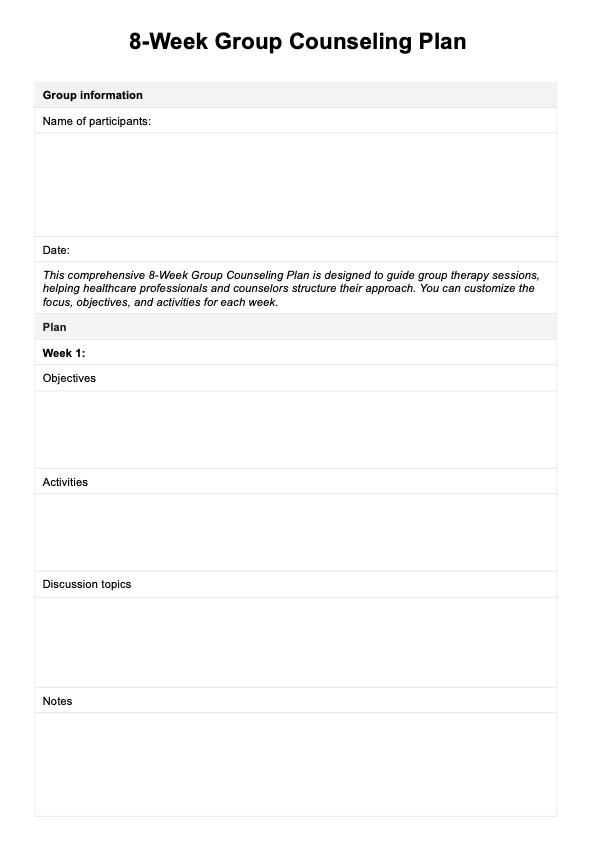A group counseling session typically lasts 60 to 90 minutes, depending on the structure and goals of the group. The length allows sufficient time for meaningful discussions and activities while keeping participants engaged.

8-Week Group Counseling Plan
Discover a flexible template for creating effective 8-Week Group Counseling Plans, tailored to meet diverse needs and foster growth.
8-Week Group Counseling Plan Template
Commonly asked questions
Group counseling generally follows four stages: forming, storming, norming, and performing. These stages guide the group from initial introductions and trust-building to productive collaboration and personal growth.
The main objectives of group counseling are to foster personal development, enhance communication and social skills, and provide emotional support. It also aims to help participants develop coping strategies for mental health challenges and life stressors.
EHR and practice management software
Get started for free
*No credit card required
Free
$0/usd
Unlimited clients
Telehealth
1GB of storage
Client portal text
Automated billing and online payments











